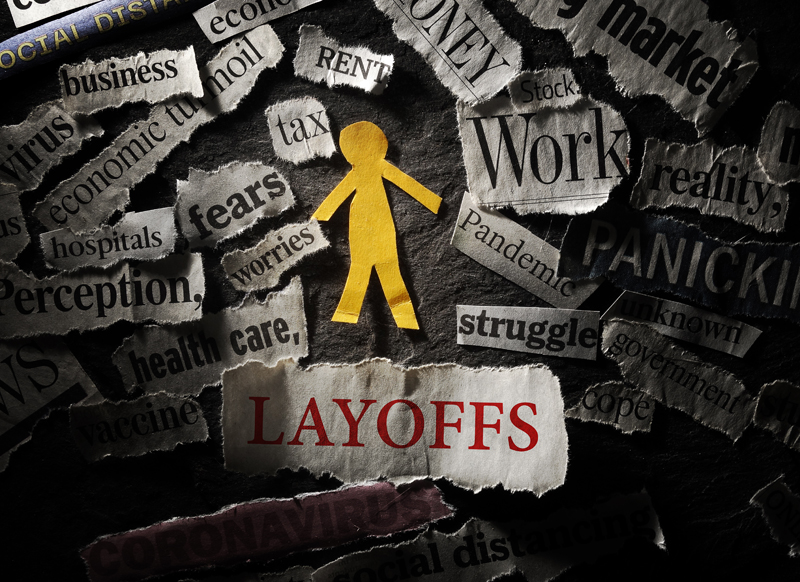
| SUMMARY |
A layoff is the termination of employment of an employee by an employer due to lack of work or other related reasons. In times of economic hardship, companies are faced with the difficult decision to let go of employees due to decreased demand for their products or services. The impact of layoffs can be far-reaching and can have long-term effects on both employees and the company as a whole.
| Questions Answered In This Article |
1. What are the effects of layoffs due to lack of work on employees?
Layoffs can have a significant impact on employees, affecting their financial security, mental health, and access to future job opportunities. They may face stress and anxiety when trying to find another job or adjust to a new lifestyle.2. How does employee turnover increase with layoffs?
With layoffs come the possibility of employees leaving for better working conditions elsewhere. When experienced individuals leave the business, it can lead to increased turnover as companies try to fill those roles with new talent.3. How can companies avoid layoffs during times of recession?
Companies can avoid layoffs by focusing on areas where they can cut costs such as travel expenses and training budgets. Additionally, they can reduce hours or salaries temporarily rather than letting employees go permanently.4. What is the best way for companies to handle layoffs in a respectful manner?
Companies should always strive for transparency when dealing with layoffs and take steps to ensure former employees land on their feet. This could include providing outplacement services such as career counseling or resume-writing workshop aimed at helping them find other employment.5. How do recessions affect certain regions and sectors?
Recessions can disrupt certain regions and sectors such as real estate, banking, hospitality, tourism and transportation industries due to decreased spending from consumers. This can lead to heavier unemployment rates in these areas if businesses need to adapt more quickly to stay afloat.Effects on Employees
Unemployment: When employees are laid off, they become unemployed, which can significantly reduce income. This sudden loss of income can be stressful for employees and can impact their ability to pay bills, provide for their families, and maintain their standard of living.
Loss of Benefits: Employees who are laid off may also lose access to benefits such as health insurance, retirement plans, and other benefits that they have come to rely on. This can have a significant impact on their overall financial security.
Emotional Trauma: Layoffs can also profoundly impact an employee's mental health. The sense of loss and uncertainty can cause feelings of anxiety, depression, and stress. It can also be difficult for employees to find new work after a layoff, leading to further decline in their mental and emotional well-being.
Decreased Morale: Layoffs can also impact the morale and motivation of remaining employees, who may feel insecure about their job security and worried about the company's future. This can lead to decreased productivity and a negative work environment.
Lower Job Satisfaction: Employees who are laid off may also have lower job satisfaction, which can negatively impact their overall quality of life. This can also make it more difficult for them to find new work, since they may be less motivated to search for a new job.
Difficulty in Finding New Work: The job market can be competitive, and it may be difficult for employees who have been laid off to find new work. This can result in extended periods of unemployment, which can have a long-term impact on their finances and quality of life.
Effects on Companies
Decreased Productivity: Laying off employees can result in a decrease in productivity for a company. Remaining employees may feel stressed and overworked as they try to compensate for the loss of their colleagues. This can also lead to an increase in turnover as employees look for better working conditions elsewhere.
Damage to Company Reputation: Layoffs can also harm a company's reputation. When employees are let go, they may spread negative word of mouth about the company, which can make it difficult for the company to attract new talent or retain its current employees.
Loss of Talent: Laying off employees can result in the loss of valuable talent and experience. When experienced employees are let go, they may take their skills and knowledge to other companies, which can be difficult for the company to replace.
Companies can feel the effects of recessions in a number of ways, such as decreased productivity, damage to their reputation, and loss of talent. Employee layoffs can lead to stress and overworking among the remaining members of staff, impacting productivity. Negative word of mouth from laid off employees can damage the company's reputation and make it difficult for them to recruit new talent. Additionally, experienced employees leaving the business means a lack of knowledge and expertise that could be costly or impossible to replace.
Conclusion
layoffs due to lack of work can profoundly impact both employees and companies. While they may be necessary in times of economic hardship, companies should consider alternative options, such as reducing hours or wages, before resorting to layoffs. They should also support employees affected by layoffs, such as job search assistance and outplacement services, to help them transition to new careers.





